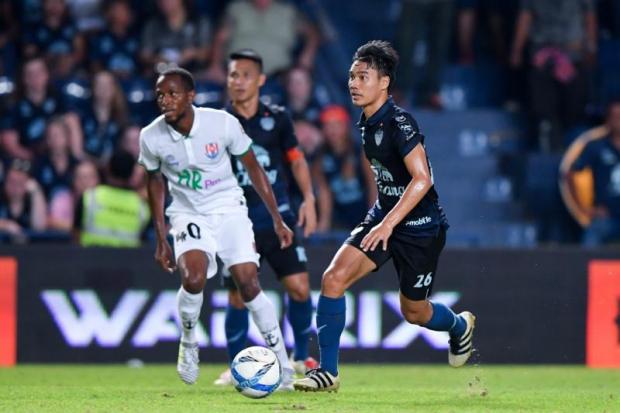
If you're a follower of Thai football, it's a case of feast or famine. There can't be many other leagues around the world with such a stop-start schedule.
The Thai League returned at the weekend for the start of the second half of the season after a two-week break.
It's the first round of the FA Cup this evening, followed by two weeks of full schedules midweek and at the weekends.
Yes, that's a staggering seven games in three weeks. But then it all comes to a shuddering halt, with another three-week break for the King's Cup and the one we've all been waiting for, the AFC U23 qualifying.
Unbelievably, there is also a one-month break in August to September so the full national team (already unable to progress, let's remember) can prepare for their World Cup qualifiers and the U23 team can compete in the SEA Games.
The league -- which started back in February -- then won't conclude until mid-November.
All this follows the stop-start first leg, where there was also one long break for the national team.
Does any of this matter? Well, it does if you care about the development of domestic football.
For one, fans run out of enthusiasm. The whole momentum of the league is lost. Fans look elsewhere.
You only had to look at some of the gates at the weekend to see some have lost interest.
Attendances were noticeably low at the weekend -- pictures of empty seats at Buriram United (against Nvay) and Bangkok United (against Thai Honda) on TV were particularly striking.
The continual breaks, and resultant cramming of fixtures, does nothing for players either.
Those who have to play so many matches in a short time are prone to injury. The walking wounded have to nurse themselves through games. Those with smaller squads are particularly affected.
The FA Cup and League Cup have to be packed in as well, but these games always feel like a poor relation when there is already so much football within a short period. The whole thing feels like a damp squib with fixture after relentless fixture.
Of course, there is a legitimate argument for having plenty of time for the national team to train together ahead of important games. But the Football Association of Thailand (FAT) has yet to find a happy medium.
If the national team fails, the disjointed league programme then drains any remaining enthusiasm from the domestic game. It's time for the FAT to have a serious rethink about the football schedule for next season.
Rajevac deals with sick notes
First it was Chanathip Songkrasin and Theerathon Bunmathan, with a hip problem and inflamed wisdom tooth (yes, really) respectively.
Then followed first choice right-back Tristan Do (flu), and after his call-up, star striker Teerasil Dangda revealed he was nursing an injury and "might not be fit". In the end he didn't play.
One can only imagine what new Thailand boss Milovan Rajevac was thinking before his first competitive game at the helm, the World Cup qualifier against the United Arab Emirates in Bangkok last Tuesday. He was without arguably his four best players.
No wonder he praised his squad after his makeshift line-up secured a very creditable 1-1 draw, only the War Elephants' second point in their group.
One thing his predecessor Kiatisak Senamuang always seemed to be able to do was call on a full-strength squad. Players seemed genuinely keen to turn out for the national team.
Rajevac will be praying this really was a freak occurrence that such key players withdrew at such short notice -- and not part of an alarming future trend.